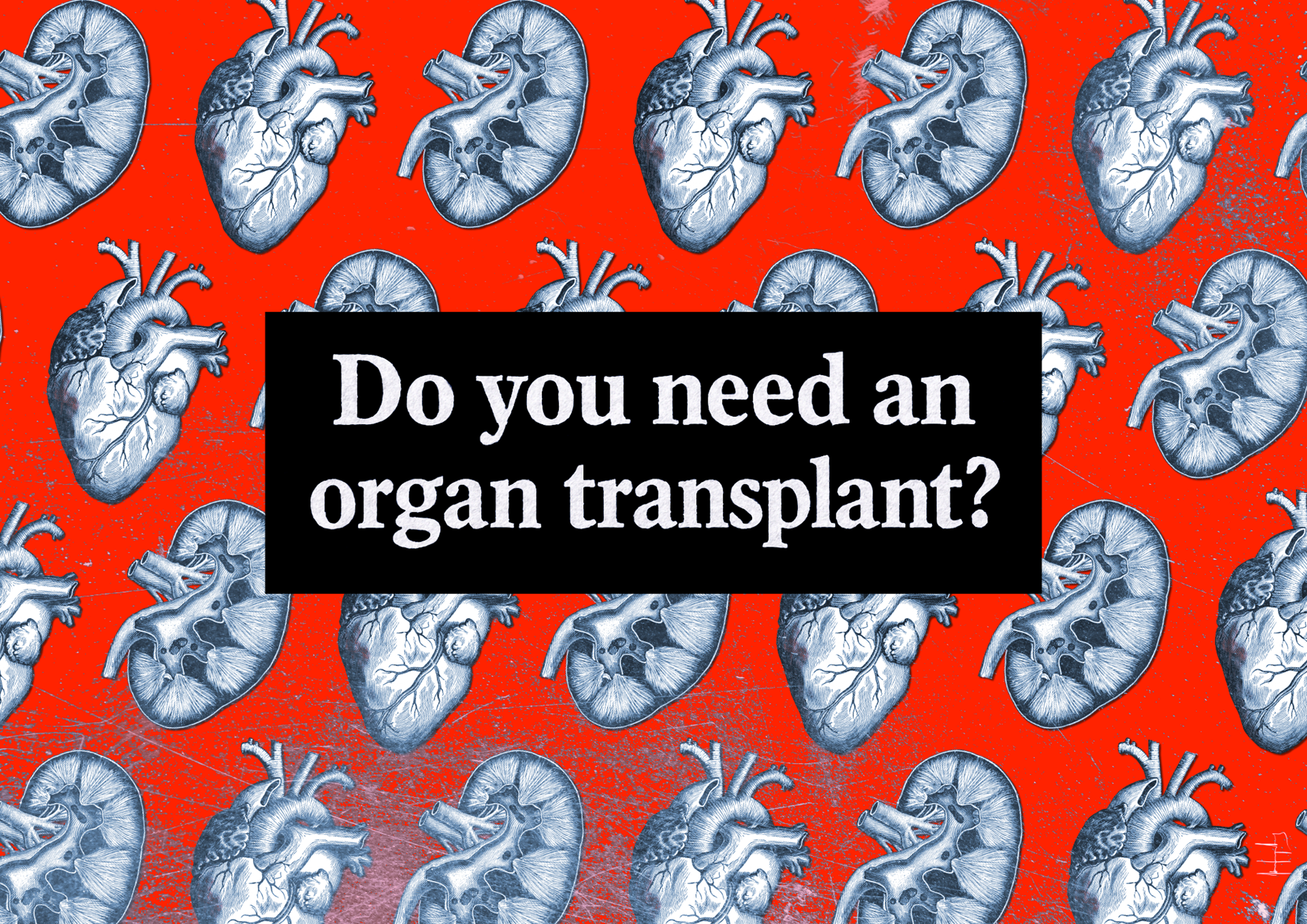This article is part of “On Borrowed Time” a series by Anissa Durham that examines the people, policies, and systems that hurt or help Black patients in need of an organ transplant.
It can be challenging to find the right sort of help when you’re sick and navigating a complicated health care system. And if you need an organ transplant, that challenge can be even more daunting. The good news is, there are a number of state and federal resources available if you find yourself in that situation.
Currently, there are more than 105,000 people on the national transplant waiting list. Of those, 92,000 are waiting for a kidney. Black Americans make up the second-largest group of people on the list, with 32,000 on it.
Many of the patients in our “On Borrowed Time” series told us it’s a challenge to maintain health insurance coverage throughout the transplant process. But it’s also difficult to find legal resources, free or low-cost food, and mental health support. So we compiled a short list of available resources to help you on your journey to transplantation.
Disability organizations
- The National Disability Rights Network is the nonprofit membership organization for the federally mandated protection and advocacy system and client assistance programs. Every state has its own P&A and/or CAP agency serving disabled people in the United States.
Resources offered vary between each state agency, but generally, these nonprofit organizations provide Medicaid, housing, education, and mental health resources. Some of the organizations offer fact sheets on how to apply for health insurance, ways to access health records, and legal support services. Check our directory below to find the P&A and/or CAP agency in your state.
- New Disabled South is a nonprofit advocacy organization focused on improving the lives of disabled people in 14 southern states. The organization created the Plain Language Policy Dashboard that breaks down complex legislation into plain language, making it easier to understand and making it more accessible.
The dashboard uses AI to translate texts into plain language, which is followed by a thorough check for accuracy — at times, additional analysis is added to curb misinformation. The goal is to provide plain language versions of bills in states across the Southern United States. The states it follows bills in are Alabama, Arkansas, Florida, Georgia, Kentucky, Louisiana, Mississippi, North Carolina, Oklahoma, South Carolina, Tennessee, Texas, Virginia, and West Virginia.
Grants for transplant recipients
- The American Transplant Foundation offers grants to transplant recipients. The site functions in two ways — you can donate to help someone, or you can apply for a grant, either as a transplant recipient or living donor. Both grants will become available in November, according to its website.
Applications for transplant recipients can only be done post-surgery. The one-time grant is available for up to $500. And the application must be completed by a transplant center’s social worker or coordinator to be considered.
Legal support
- There are organizations in every state that offer free or low-cost legal services — especially helpful for folks who can’t afford to pay a lawyer. LawHelp.org connects people with pro bono attorneys and law firms in your state. A few large cities may have their own legal aid organizations, like in Chicago, Philadelphia, Los Angeles, and New York. Check our directory below to find your state's Legal Aid Society or another legal aid resource.
Food assistance
- If you are covered through certain Medicaid or Medicare programs, people with disabilities may be eligible for free home-delivered meals. Mom’s Meals offers free or discounted meals for folks living with a disability. If you don’t qualify for their free food program, the meals start at $7.99. On their website, you can select your state and customize the medically tailored meals you want delivered.
- Feeding America has a directory of food pantries and food banks in every city across the country. Simply type in your zip code, and the nearest available food bank will show up. Most of the locations listed detail the hours of operation, address, phone number, and the type of distribution available.
Mental health support
- Living with a chronic disease and trying to get on the transplant list is exhausting. Add the time it takes to look for a therapist, and it can easily feel overwhelming. But it doesn’t have to be that way. Therapy for Black Girls, Therapy for Black Men, Black Emotional and Mental Health Collective, and Melanin and Mental Health are four different organizations that have built directories of hundreds of Black and culturally competent providers in various cities and states across the country. The easy-to-use directory allows folks to select gender, specialty, insurance, and type of therapy preferences.
Anissa Durham reported this story as one of the 2025 U.S. Health System Reporting fellows supported by the Association of Health Care Journalists and the Commonwealth Fund. The Commonwealth Fund also supports Word In Black’s health reporting.





